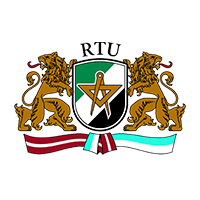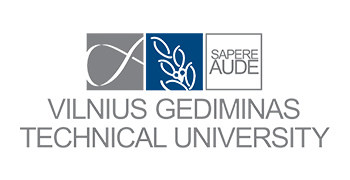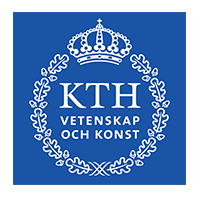Kaunas University of Technology will hold the 2nd International PhD Summer School, dedicated to development of transferable skills in August 21-25, 2017 at seaside resort Palanga, Lithuania.
Doctoral students with strong intellectual curiosity will have an opportunity for exploration and cultural enrichment. Over the course of three days, 3 topics will be covered: scientific writing, project management for PhD students and research data management planning and tools.
Application deadline at 15 May, 2017. For more information, read the information leaflet or visit summer school web-page.
Kaunas University of Technology cordially invites teaching staff from our partner universities to join us for a 5-day programme of International Staff Week “Teaching in English in Non-English Speaking University”.
Goal of the project is to share the experience, tips and tricks of teaching in English. Target group is expected to be teachers who deliver degree programmes through the medium of English. Duration of the event is 5 days (24 – 28 April 2017).
To apply for International Staff Training Week, please fill in the online application. Application deadline is 1 March 2017.
Selected applicants will be informed by 8 March at the latest. They will receive all relevant information and guidelines. Participation in the Staff Week is free of charge. The participants are expected to cover their travel and hotel costs themselves or using “Erasmus+” funding provided by their home university. For the program of the event, please, click here.
The working language of the event is English.
Recognising the efforts of Riga Technical University (RTU) in ensuring sustainable development of the environment and the willingness to promote it, the university was admitted to the Sustainable Development Solutions Network (SDSN) at the beginning of April. SDSN aims at reaching 17 goals set by the United Nations (UN) with respect to global sustainable development in 2030. Currently, RTU is the only organisation from the Baltic States, which joined the network. For more information
Fab Lab Kaunas serves as a miniature factory of electronics and shall provide students with the opportunity to apply the theoretical knowledge gained during their studies in practice. Facilities at KTU Faculty of Electrical and Electronics Engineering comprise the fully functioning modern laboratories of Industrial Electronics, Avionics and Nanosatellites as well as Electromagnetic Compatibility.
Fab Lab Kaunas is a result of close cooperation between the KTU Faculty of Electronics Engineering and local business enterprises operating in the Electronics Industry. The main aim of the project is to create added value to both the university and the industry.For more information
The Rector of Tallinn University of Technology (TUT) Academician Jaak Aaviksoo and the Rector of the Belgian LU Leuven University Prof. Dr. Rik Torfs signed the memorandum of understanding aimed at enhancing cooperation between the universities.
The memorandum was signed for the period of three years and provides for cooperation in the field of research and development, exchange of students and lecturers and organisation of joint seminars and scientific conferences. For more information
The laboratory is the most modern synchrotron radiation facility in the world and will provide the most brilliant x-ray light to more than 2,000 researchers around the world who will come each year to make groundbreaking experiments in materials and life sciences. At the laboratory, you can study atoms and molecules that are only a few tenths of a nanometer in diameter, which provides researchers with completely new knowledge about the world and how it works. For more information
Singapore is aiming at becoming the first “smart” state in the world. One of the major tasks to achieve this goal is to form a virtual Singapore, where the priority would be the 3D models and maps of the infrastructure of buildings as well as the underground infrastructure. The guest will present his vision of the development of Singapore in his lecture “The practice of creating a 3D city model”. For more information
Christer Fuglesang is Sweden’s first astronaut to fly into space, so it’s perhaps appropriate that he becomes the first professor at KTH to lead a massive open online course (MOOC).
MOOCs are conducted over the web, via computer. KTH’s first course is available to students all over the world through KTH’s partnership with the edX global education platform. The class provides an historical overview of manned spaceflight and, among other things, covers the political, economical and community perspective of human space travel.
Students in about 100 countries are enrolled in Human Spaceflight. Interaction between the students and teaching team (Fuglesang has three teacher assistants in this case) is open and spontaneous, but done through active forums related to each lesson.
After every lecture the course participants get test questions; at the end of the course there is a digital discussion forum. Fuglesang will also send out a weekly email to the class.For more information
Collaboration, student democracy, development in teaching and learning, and a sense of home. In a long citation that covered a large number of points, the head of the Swedish National Union of Students announced that Linköping had been named 2016/17 University City of the Year. For more information
Riga Technical University is pleased to announce its 5th International Staff Training Week, which will take place from 23 to 27 May 2016 in Riga, Latvia.
The five-day program consists of plenary sessions, workshops, presentations and social events. For the second time the program is designed both for international officers and staff dealing with financial management of HEI. The program includes meetings with representatives of the Office of the Vice-Rector for Finance of RTU, presentations, workshops and visiting units of the Office of the Vice-Rector for Finance.
Deadline for application is 7th March, 2016. For more information
Researchers at Lund University in Sweden have developed a water purification plant that provides clean water far beyond the reach of the electrical grid – thanks to solar cells. With the help of Nobel Peace Prize recipient Muhammad Yunus, these small and portable solar cell stations have now been placed across rural Bangladesh.
“750 million people lack access to clean water across the globe. To be able to supply safe drinking water is one of the biggest challenges and one of the most important goals for humanity”, says inventor Kenneth M Persson, Professor of Water Resources Engineering at Lund University.
The environmental company Watersprint, founded in 2013 by Kenneth M Persson and engineer Ola Hansson, has patented the technology that helps disinfect and purify water by combining UV-LED technology with intelligent software and Wi-Fi. Its system of 12 volts is so effective that it can be run by a single solar panel. The solar cells also charge its battery, which means that the portable facility can be used around the clock and in rural areas without access to electricity.
“The installations are hopefully only the first step to set up similar structures in several other countries that lack access to clean water”. For more information
Although it’s built on the scale of a toy, the prototype vehicle represents a giant step towards realizing a vision of new lightweight materials from the forest, one of the benefits of a so-called bioeconomy.
The demo is a joint project of KTH Royal Institute of Technology, the Swedish researcher institute Innventia and Swerea, a research group for industrial renewal and sustainable development.
The key ingredient in the carbon fibre composite is lignin, a constituent of the cell walls of nearly all plants that grow on dry land. Lignin is the second most abundant natural polymer in the world, surpassed only by cellulose.
Göran Lindbergh, Professor and Head of the Department of Chemical Engineering and Technology at KTH.
Göran Lindbergh, Professor of Chemical Engineering at KTH, says that the use of wood lignin as an electrode material came from previous research he did with Innventia. Lignin batteries can be produced from renewable raw materials, in this case the byproduct from paper pulp production.
“The lightness of the material is especially important for electric cars because then batteries last longer,” Lindbergh says. “Lignin-based carbon fiber is cheaper than ordinary carbon fibre. Otherwise batteries made with lignin are indistinguishable from ordinary batteries.”For more information
“This is the era of transferring knowledge into innovation”, said KTU’s Vice-Rector for Research Asta Pundziene, “therefore we are financially encouraging the interdisciplinary research, so as the researchers from different University’s departments had the possibility to test their ideas”.
According to Pundzienė, the institutional funding “buys” time form researchers from different fields and departments, allowing them to look for joint solutions to problems, and to test their ideas.
“The projects, which were introduced today, can become a draft for future applications for national or international funding, can encourage collaboration with business. This, in turn, can lead to more mature technologies and innovations”, Pundzienė is convinced.
Applying for national or international funding requires some solid base – the researchers must have clearly defined goals and to declare the expected results. It takes time, therefore, the initial funding for the crystallization of ideas is necessary. For more information:
On 19 January 2016, (VGTU) built a direct “bridge” to Japan, using the information technologies of a classroom of Distance Learning Centre at VGTU for the second time. This time, Arvydas Rimkus and Edgaras Timinskas, the lecturers of Engineering Graphics of the Faculty of Fundamental Sciences at VGTU, delivered a lecture for the students of Kobe University in Japan. Thirty-eight VGTU Architecture faculty and eight Construction Engineering faculty students participated at the lecture.
During the lecture, VGTU teachers presented two samples – Nordic Himmeli sculptures (Lithuanian heritage) and the French Eiffel Tower – two very different in scale and purpose, but similar in their geometric structure models, while introducing the modelling of bolt system to the young Japanese scientists.
For more information
Kaunas University of Technology will hold the 1st International PhD Summer School, dedicated to development of transferable skills August 23-26, 2016 at seaside resort Palanga.
PhD Summer School aims to:
– equip participants with essential skills in writing proposals, scientific articles and doctoral thesis;
– provide participants with good networking opportunities, a friendly social environment, and an exciting time at the seaside resort Palanga.
Prerequisites. The summer school will be held in English. In order to participate, doctoral students should have sufficient language skills.
Application deadline: April 30, 2016
Fee deadline: May 30, 2016
Kaunas University of Technology cordially invites teaching and administrative staff from our partner universities to join us for a 5-day programme of Staff Training Week.
Goal
1) to share experience/learn tips and tricks of teaching in English;
2) to share experience/learn how various HEIs are assisting their teachers in improving quality of teaching in English.
Target group
1) subject teachers in English;
2) administration staff (counsellors/coachers, HR, qualification development specialists) / academy development.
Duration
5 days (25th – 29th April 2016)
Application
To apply for International Staff Training Week, please fill in the online application form http://goo.gl/forms/tw2ChkRoG2.
Application deadline is 15th March 2016.
Participation in the Staff Training Week is free of charge. The participants are expected to cover their travel and hotel costs themselves or using ERASMUS+ funding provided by their home university. Entrance fees for cultural events may apply. Selected applicants will be informed by 20th March at the latest. They will receive all relevant information and guidelines. The working language of the event is English. For more information:
The scientists of Tallinn University of Technology have created a simulation system for professionals. The system intended for carrying out computer-based training’s and simulations was created in cooperation with the scientists of 15 Member States of the European Union and Israel and with private and public sector organisations. In addition to snowstorms, it also allows to prepare for floods and earthquakes, which are rare in Estonia. In Estonia the system created in the framework of the CRISMA project allows for example to prepare for the events that occur almost every winter – multiple vehicle collisions taking place in case of an icy road surface like the collision of 13 cars on the Tallinn-Narva highway in January this year. For more information
“For us in the social sciences, it is very important to highlight that there is no simple link between climate change and migration”, says Dr. Angela Oels, a visiting professor at the Lund University Centre for Sustainability Studies (LUCSUS). “In fact, multiple factors influence the decision to migrate.”
Angela Oels is the lead organiser of a side event at COP21 that Lund University is hosting in collaboration with the universities of Hamburg and Lancaster. Angela Oels is holder of the 2015 Humboldt Stipend awarded by the Swedish Foundation for Humanities and Social Sciences. For more information
Four researchers and two students from Linköping University will be on site in Paris to monitor COP21 – and to continue work on the participant survey that LiU has managed since in 2007.
Eva Lövbrand, senior lecturer at Linköping University’s Department of Thematic Studies – Environmental Change, will arrive two days before the official start of COP21 – the 2015 Paris Climate Conference. Dr Lövbrand’s research focuses on the role of non-state actors in climate cooperation. In Paris she will observe how civil society mobilises in conjunction with the conference, e.g. for the big march through Paris on the preceding Sunday.For more information
Representatives of Kaunas University of Technology (KTU) Faculty of Electrical and Electronics Engineering (EEF) and the Vice Rector for International Relations of the Miguel Hernández University of Elche (UMH) officially confirmed the launch of a brand new cooperation agreement between the institutions.
The Lithuanians and the Spanish shall cooperate whilst working on joint projects between the existing research groups, share the best practices as well as exchange their scientific expertise, resources and technological know-how. Moreover, from now on all KTU EEF and UMH students will have the option to apply for a double degree international PhD studies in both Spain and Lithuania. For more information
In late October, Lund University arranged a follow-up seminar in Rwanda on children’s rights at school. Some 30 representatives from the school sector in six different countries in West and East Africa participated and presented change projects that they have been working on with professional supervision for almost a year.
One of the mentors from the National Resource Centre for Physics Education (NRCF) and the Teacher Education Program at Lund University, Lassana Ouattara, who was born and raised in Ivory Coast, says: “They have made an impressive journey in a very short time.” For more information
Linköping University has climbed to 24th position in the 2015-16 QS ranking of universities less than 50 years old. This ranking, QS Top 50 Under 50, includes universities worldwide that are less than 50 years old. This time the six top positions were taken by Asian universities, with Singapore’s Nanyang Technological University at the top.It has been a rapid ascent for LiU, which only entered the Top 50 Under 50 list three years ago. ”It’s good news that we keep moving higher,” said LiU Vice-Chancellor Helen Dannetun. Of the young universities in Europe, Linköping University ranks seventh. For more information
It gets pretty dark in Stockholm during late November, but this week the campus is focused on light. The Festival of Light at the KTH Dome of Visions is being held in conjunction with the UN’s International Year of Light.
The setting includes an installation by the KTH Lighting Laboratory and daily of lectures exploring different aspects of light, including energy, health and architecture. For more information
During Job Shadowing Day , the Estonian Employers’ Confederation and Tallinn University of Technology (TUT) send 24 international students to get to know Estonian companies. Ten leading Estonian companies participate in the project.
“There are thousands of international students studying in Estonia and it is our desire that after graduation the majority of them would tie their professional careers with Estonia and implement their skills, experiences and networks in favour of the local business environment,” the Education Advisor of the Estonian Employers’ Confederation Anneli Entson says. “For many international students participating in job shadowing provides the first real contact with the Estonian work culture, and hopefully it will later facilitate the process of finding a suitable apprenticeship and a job. It also provides an opportunity for employers with no or little experience with foreign workforce for an insight into the value international students might add to their organization.” For more information
At VGTU central building was held opened lecture by Phil Jackson “The UK BIM strategy experience”.
Phil is a Fellow of the Institution of Civil Engineers with many years of practical experience in design and construction. He is an acknowledged leader in the deployment of Information Technology in Infrastructure Design, Construction and Operational Management. His background and experience has encompassed most aspects of the construction industry from buildings through infrastructure to asset management. For more information
Baltic Management Development Association (BMDA) and Riga Technical University (RTU) welcomes international Academic and Business community to the European Cultural Capital of 2014 – Riga – for the exceptional event – 12 Annual BMDA Conference. For already 12 years Baltic Management Development Association (BMDA) brings together the representatives of various Business schools and the Corporate world from Baltic sea region and beyond for major annual event, where different contemporary issues of management development are shared, analyzed and discussed, in order to find the best solutions. For more information
The scholarly book isn’t dead. Researchers have long been under pressure to publish articles rather than monographs, but complex issues call for a larger format than the article provides. The new Lund University Press testifies to that fact. In collaboration with the third largest University Press in Britain, it will spread top-class Lund research world-wide, publishing its books simultaneously online (Open Access) and in print. For more information
At Spotify’s San Francisco headquarters, entrepreneurs from KTH got to present their startup ideas recently for a sold-out crowd and a jury of Silicon Valley investors.
The five companies from KTH are participating in Brighter, a startup immersion program developed by KTH Innovation.
“The students participated in workshops, meetings and study visits around Palo Alto and San Francisco, with a focus on innovation ecosystems and their various actors,” says My Klint of KTH Innovation, who is responsible for the Brighter program. For more information
Tallinn University of Technology is partner in a new ERASMUS+ capacity building project TACTIC (Through Academic Cooperation Towards Innovative Capacity).
The project aims to increase management capacities and internationalization of the universities in Mongolia, Cambodia and Vietnam to make them competitive in the global market.
The project proposes to create tools and training for increasing professionalization of the management and to create a network for cooperation to transfer innovation and information between the partners. For more information
Linköping University and Guangzhou University signed a memorandum of understanding, providing a structure for their ongoing collaboration.
Guangzhou University is a rapidly growing university in Guangzhou, China’s third largest city. A project between Linköping University and Guangzhou University has been underway for over a year, with the aim of establishing a joint centre for sustainable urban development in 2016. For more information
The Director of ENSEC COE and the Rector of Kaunas University of Technology Petras Baršauskas exchanged the ideas of future practical cooperation in different research and innovation fields. “Innovative ideas in energy sector and cyber security are the questions of the present and the future. They are important not just for the general population but also for the academia. I will do everything in my power that this cooperation with the ENSEC COE would last and would be fruitful”, the Rector said.
According to Baršauskas, the starting collaboration with NATO ENSEC COE is signifying the University’s intensifying cooperation with NATO. Two years ago the former NATO Secretary General Anders Fogh Rasmussen was awarded the title of KTU honorary doctor. For more information
Dr. Arun Majumdar, Professor of the Department of Mechanical Engineering, at Stanford University (USA), Director of Precourt Energy Institute, member of U.S. Secretary of Energy’s Advisory Board, and Google consultant, visited Vilnius Gediminas Technical University (VGTU).
This outstanding guest delivered a lecture on “Energy Efficiency: the Lessons Learned in the U.S.” for VGTU students.
Energy efficiency is often called a low-hanging fruit and yet it is not always fully utilized. The talk was discuss why this is so and was draw upon the lessons learned in the U.S. to show how the alignment between technology, markets, regulations, and financing can accelerate energy efficiency measures in the most cost-effective manner. For more information
Riga Technical University has become a partner of a three-year project OIKOnet, whose purpose is to create an international platform of collaboration to study contemporary housing from a multidisciplinary and global perspective. Faculty of Architecture and Urban Planning is representing the RTU in the project. A total of 34 organizations from 29 countries in Europe and around the world are part of this network. For more information







